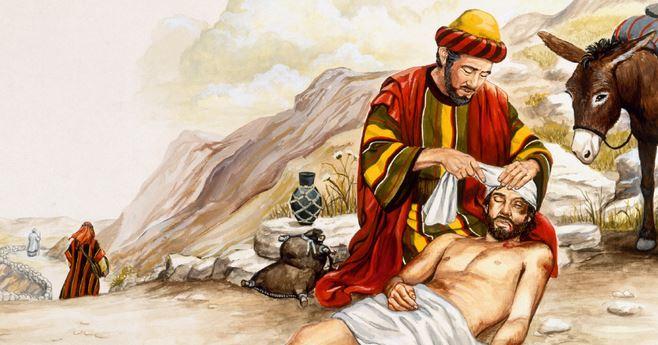
Who are the Samaritans?
The Samaritans are an ethno-religious group with roots in ancient Israel. They consider themselves the true descendants of the Israelite tribes, particularly the tribes of Ephraim and Manasseh, who settled in the territory of the Northern Kingdom of Israel during biblical times. Unlike the Jews who inhabited the southern Kingdom of Judah, the Samaritans developed their own religious identity and practices, which differ from those of Judaism in some important aspects.
History of the Samaritans:
Old Testament:
In the Bible, the Samaritans appear primarily in the story of the separation of the Kingdoms of Israel and Judah after the death of King Solomon. After the Northern Kingdom of Israel was conquered by the Assyrians (in the 8th century BC), the people of the Northern Kingdom remained as Samaritans and retained many of their religious practices.
Separation from Judaism:
Over time, the Samaritans developed independently of Judaism, especially after the destruction of the First Temple in Jerusalem and the exile of the Jews. However, they adhered to strict monotheism and a version of the Law of Moses (Torah), rejecting some elements of Jewish belief, such as the importance of Jerusalem as a holy place. For the Samaritans, Mount Gerizim in Samaria (now part of the West Bank) is the true holy place, not the Temple Mount in Jerusalem.
Conflicts with the Jews:
Biblical texts, especially in the Old Testament, report tensions between the Samaritans and the Jews, who are often portrayed as religious and ethnic rivals. A well-known example of these tensions can be found in the Gospels, where the Samaritans are viewed as "outcasts" or "heretics" in the New Testament.
Religious Beliefs and Practices:
Bible: The Samaritans accept only the five books of Moses (Genesis, Exodus, Leviticus, Numbers, and Deuteronomy) as holy scripture. They reject the other books of the Old Testament recognized by the Jews, such as the Psalms and the Prophets.
Belief in the Messiah: The Samaritans believe in a future prophet or Messiah who will come, similar to the Jews, but their ideas about this Messiah differ in some details.
Holy Place: Mount Gerizim is the true holy place for the Samaritans, where they perform their religious ceremonies, while the Jews consider the Temple Mount in Jerusalem holy.
Rituals and Prayers: The Samaritans pray and offer sacrifices according to their own religious tradition and have their own temples and rituals, although the central temple at Gerizim was destroyed in ancient times.
The Samaritan Community Today:
The number of Samaritans is very small today. There are only about 800 Samaritans left worldwide, living mainly near Mount Gerizim in Palestine (north of Nablus) and in Holon in Israel.
Despite their small numbers, the Samaritans strive to preserve their traditions and pass on their culture to the next generation.
Today, they are recognized as a religious minority, and their culture is often respected by wider society, although they continue to face challenges in maintaining their identity.
Samaritans in Christianity:
Another notable theme associated with the Samaritans is the parable of the Good Samaritan in the Bible (Luke 10:25-37). In this parable, a Samaritan is portrayed as the true "neighbor" of an injured man, which was a provocative depiction at the time, as Samaritans were viewed as inferior by many Jews. This parable has had a profound influence on Western Christian morality and the concept of charity.
Conclusion:
The Samaritans are a fascinating community with a long and complex history deeply rooted in the origins of ancient Israel. Their traditions and beliefs differ from Judaism and Christianity in some important respects, but their history is a significant part of the cultural heritage of the Middle East.
There are no known "Samaritan sects" in the classical sense, as the Samaritans are a distinct, historical religious community based on their interpretation of ancient Israelite beliefs. However, there are some groups that may refer to the Samaritans or similar traditions, but are not directly connected to traditional Samaritans. Here are some possible contextualizations:
1. Modern religious groups that refer to Samaritans:
Some Christian or esoteric groups may invoke Samaritanism to emphasize an alternative or historical religious path. However, these groups would not be part of the actual "Samaritan" faith, but could rather be considered a sect.
or religious movements that deviate from traditional teachings.
2. The Samaritan Community Itself:
The Samaritans are a small but ancient religious community. They have their own religious practices and sacred texts, which differ from those of most other Jewish and Christian groups. Their religion is based on the Torah (as in Judaism), but they reject many rabbinic traditions and emphasize Mount Gerizim as the true place of worship, rather than Jerusalem.
3. Historical Perspectives and Misconceptions:
There were times in history when the Samaritans were considered "heretics" or "sects" by other religious groups (especially Jews) because they had their own interpretations of the faith and religious practices. In ancient times, the Samaritans were often confronted with deviant practices and were sometimes viewed as "apostates" or "dividers," which could be confused with the modern notion of "sects."
4. New religious movements:
In the modern world, there are groups that attempt to reconstruct or emphasize Samaritan traditions, but these groups are usually very small and not known as "sects" in the traditional sense.

